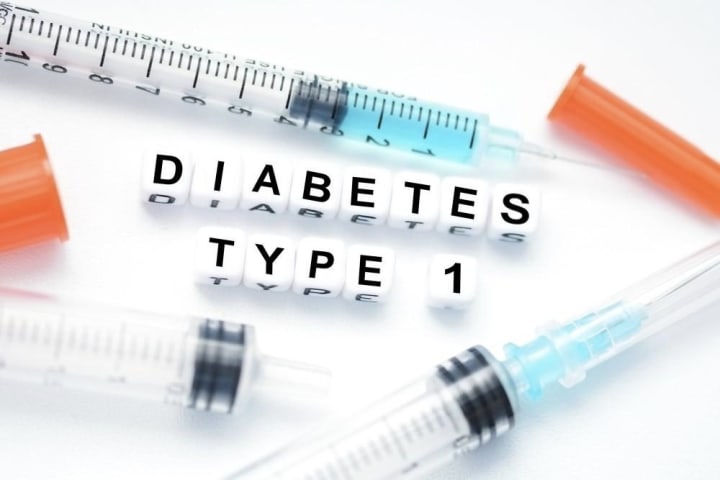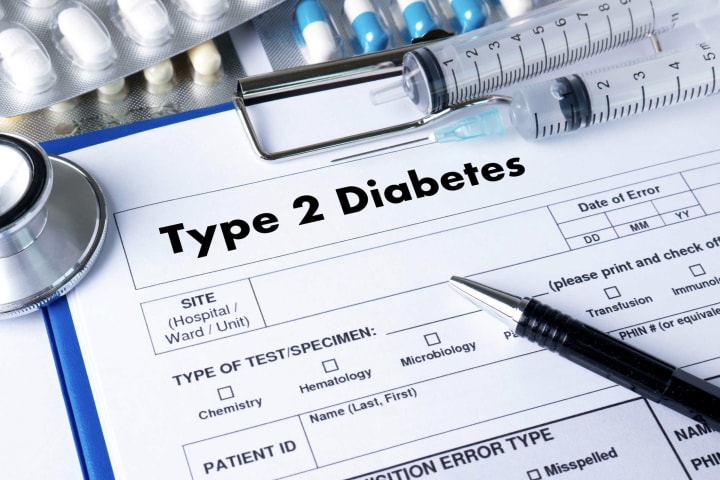Diabetes- All You Need To Know
Diabetes- What it is & what are the types

“Diabetes usually occurs when the pancreas produces no insulin or very small quantity of insulin, or when the body does not respond properly to insulin. It is a medical condition that impairs the body’s ability to process blood glucose, which is also known as blood sugar.”- Says Dr. Ramit Singh Sambyal who is one of the best general physician in Vasant Kunj.
Different kinds of diabetes are there, and managing the condition depends on the type of diabetes. Not all types of diabetes stem from a person being obese or leading an inactive lifestyle & poor diet. In fact, in some cases it might be present from childhood. So, in this article Dr. Ayush Chandra who is one of the best diabetologist practicing in model town, Ghaziabad will discuss everything that you should know about diabetes including their types.
What is type 1 diabetes?

In autoimmune diseases, like type 1 diabetes, the system mistakenly manufactures antibodies and inflammatory cells that are directed against and cause damage to patients' own body tissues. In persons with type 1 diabetes, the beta cells of the pancreas, which are liable for insulin production, are attacked by the misdirected system. It's believed that the tendency to develop abnormal antibodies in type 1 diabetes is, in part, genetically inherited, though this is not fully understood yet.
Exposure to certain viral infections (mumps and Coxsackie viruses) or other environmental toxins may serve to trigger abnormal antibody responses that cause damage to the pancreas cells where insulin is formed. A number of the antibodies seen in type 1 diabetes include anti-insulin antibodies, anti-islet cell antibodies, and anti-glutamic decarboxylase antibodies. These antibodies are often detected within the majority of patients, and should help determine which individuals are in danger for developing type 1 diabetes.
Type 1 diabetes tends to occur in young, lean individuals, usually before 30 years of age; however, older patients do present with this type of diabetes rarely. This subgroup is mentioned as latent type I diabetes in adults (LADA). LADA may be a slow, progressive sort of type 1 diabetes. Of all the people with diabetes, only approximately 10% have type 1 diabetes and therefore the remaining 90% have type 2 diabetes.
What is type 2 diabetes?

Type 2 diabetes was also mentioned as non-insulin dependent DM (NIDDM), or type II diabetes mellitus. In type 2 diabetes, patients can still produce insulin, but do so relatively inadequately for his or her body's needs, particularly within the face of insulin resistance as discussed above. In many cases, this actually means the pancreas produces larger than normal quantities of insulin. A serious feature of type 2 diabetes may be a lack of sensitivity to insulin by the cells of the body (particularly fat and muscle cells).
In addition to the issues with a rise in insulin resistance, the discharge of insulin by the pancreas can also be defective and suboptimal. In fact, there's a known steady decline in cell production of insulin in type 2 diabetes that contributes to worsening glucose control. (This may be a major factor for several patients with type 2 diabetes who ultimately require insulin therapy.) Finally, the liver in these patients continues to supply glucose through a process called gluconeogenesis despite elevated glucose levels. The control of gluconeogenesis becomes compromised.
While it's said that type 2 diabetes occurs mostly in individuals over 30 years old and therefore the incidence increases with age, an alarming number of patients with type 2 diabetes are barely in their teen years. Most of those cases are an immediate results of poor eating habits, higher weight, and lack of exercise.
While there's a robust genetic component to developing this type of diabetes, there are other risk factors - the foremost significant of which is obesity. there's an immediate relationship between the degree of obesity and therefore the risk of developing type 2 diabetes, and this is true in children also as adults. It's estimated that the prospect to develop diabetes doubles for each 20% increase over desirable weight.
Regarding age, data shows that for every decade after 40 years aged no matter weight there's a rise in incidence of diabetes. The prevalence of diabetes in persons 65 years aged and older is around 25%. Type 2 diabetes is additionally more common in certain ethnic groups. Compared with a 7% prevalence in non-Hispanic Caucasians, the prevalence in Asian Americans is estimated to be 8.0%, in Hispanics 13%, in blacks around 12.3%, and in certain Native American communities 20% to 50%. Finally, diabetes occurs far more frequently in women with a previous history of diabetes that develops during pregnancy (gestational diabetes).
There are one more type of diabetes that is actually considered to be a temporary diabetes.
Gestational diabetes

Diabetes can occur temporarily during pregnancy, and reports suggest that it occurs in 2% to 10% of all pregnancies. Significant hormonal changes during pregnancy can cause blood glucose elevation in genetically predisposed individuals. Blood glucose elevation during pregnancy is named gestational diabetes. Gestational diabetes usually resolves once the baby is born. However, 35% to 60% of girls with gestational diabetes will eventually develop type 2 diabetes over subsequent 10 to twenty years, especially in those that require insulin during pregnancy and people who remain overweight after their delivery. Women with gestational diabetes are usually asked to undergo an oral glucose tolerance test about six weeks after the baby is born to know if their diabetes has persisted beyond the pregnancy, or if any evidence (such as impaired glucose tolerance) is present which will be a clue to a risk for developing diabetes.





Comments
There are no comments for this story
Be the first to respond and start the conversation.